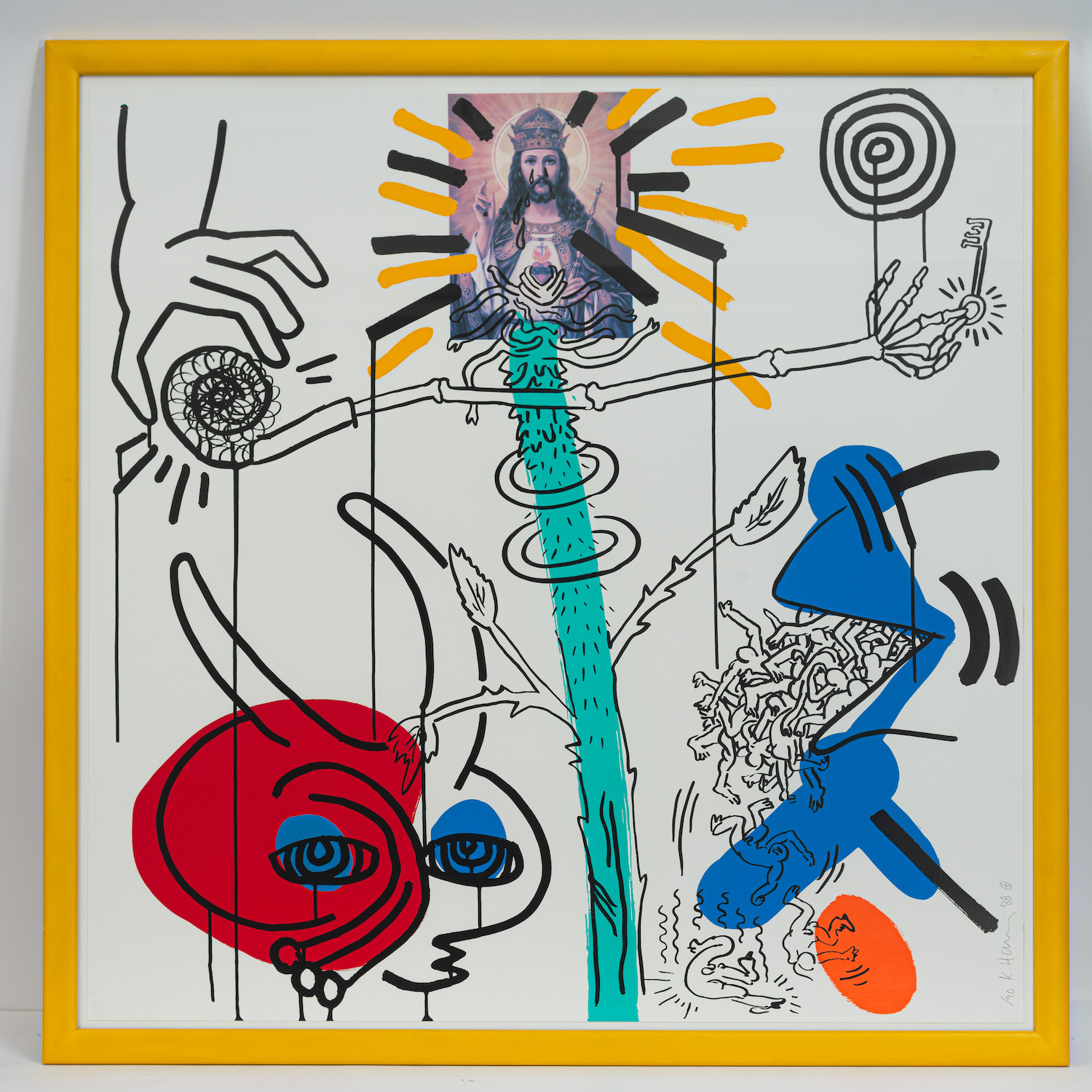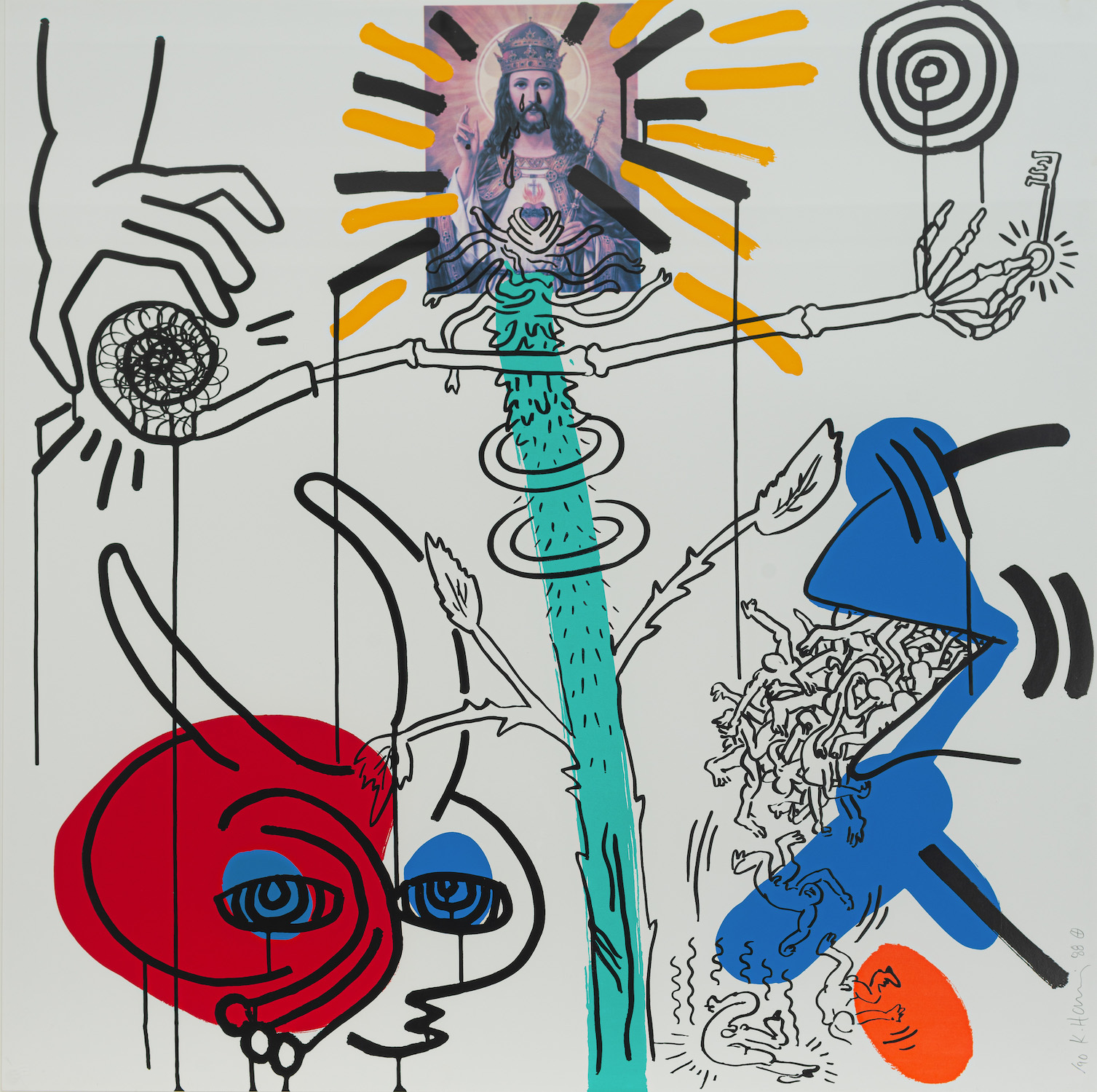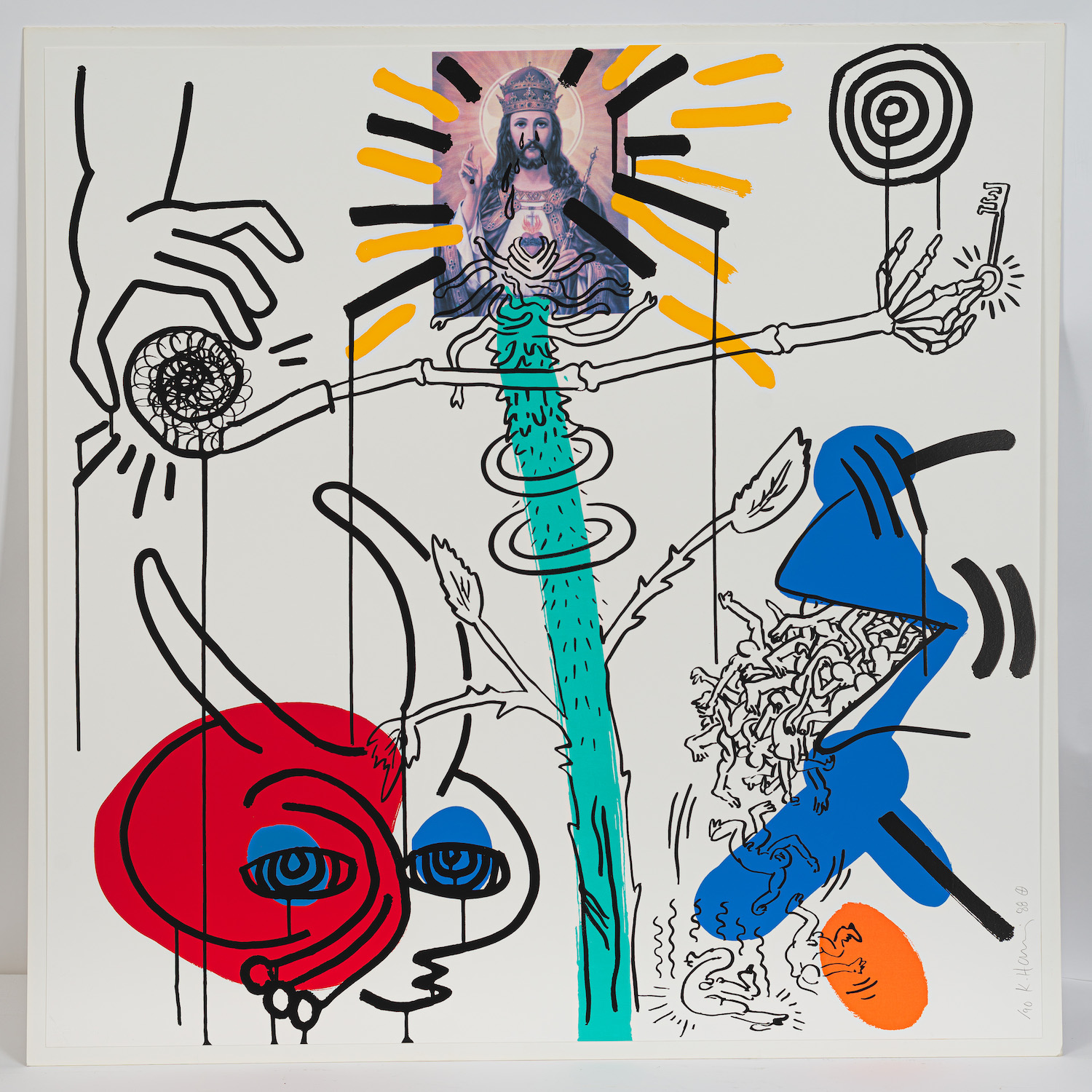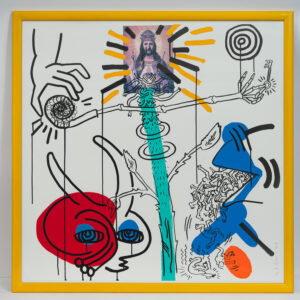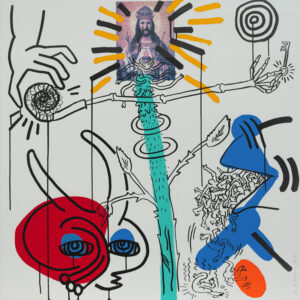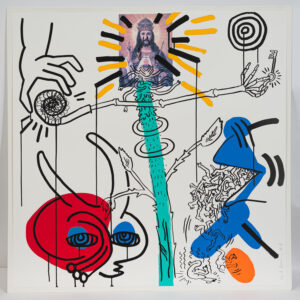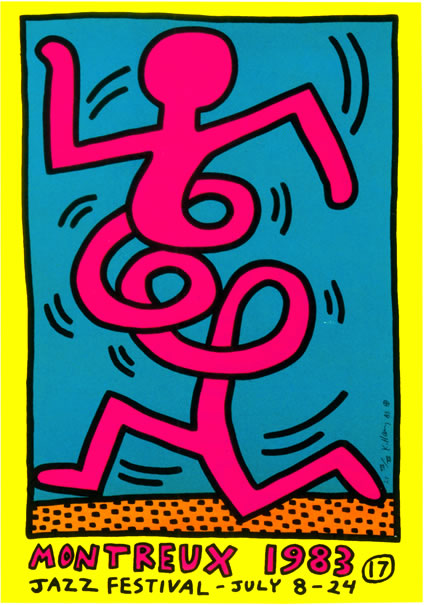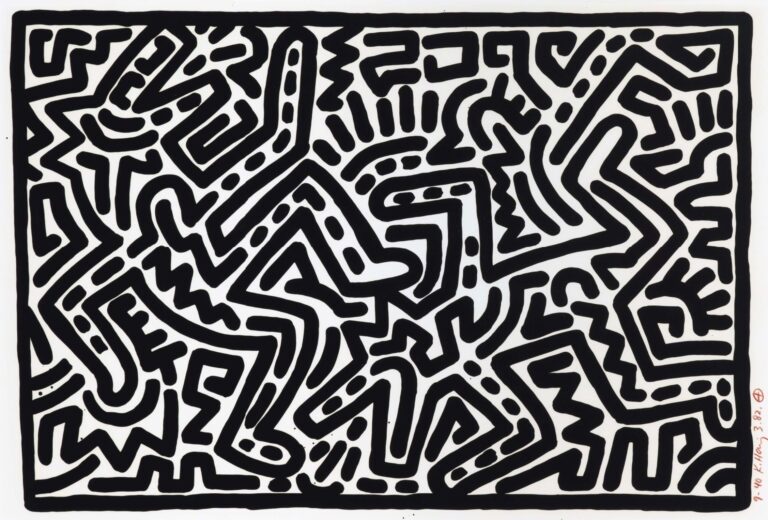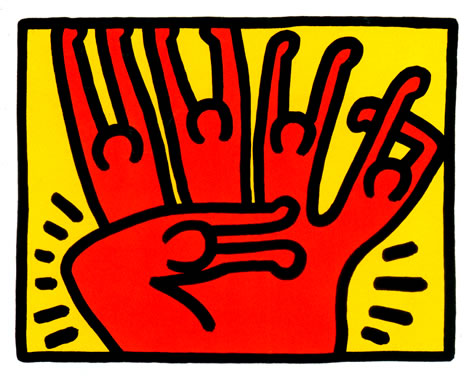In Apocalypse (10), the final installment of Keith Haring’s evocative screenprint series Apocalypse, Haring offers a synthesis of the catastrophic and the hopeful, referencing the apocalyptic scene William S. Burroughs situates in New York City. Amidst a white backdrop, bold black lines paired with delicate details craft a balanced composition. The centerpiece is a flourishing green stem crowned with a radiant collage of Christ, his heart aflame and surrounded by rays of yellow and black. This green emblem of growth and optimism stands in stark contrast to the fiery, phallic column seen in the first print of this series (Apocalypse 1), rising up from the masses and crowned with a shape evoking a mushroom cloud.
Page 10
Skyscrapers scrape rents of blue and white paint from the sky, the rivers swirl with color, nitrous ochres and reds eat through the bridges, falling into the rivers, splashing colors across warehouses and piers and roads and buildings, AMOK art floods inorganic molds, stirring passion of metal and glass, steel girders writhing in mineral lusts burst from their concrete covers, walls of glass melt and burn with madness in a billion crazed eyes, bridges buck cars and trucks into the rivers, the sidewalks run ahead faster and faster, energy ground down into sidewalks and streets by billions of feet and tires erupts from manholes and tunnels, breaks out with volcanic force:LET IT COME DOWN
Caught in New York beneath the animals of the village, the Piper pulled down the sky.
Intersecting the stem is a bony chain, leading to a skeletal hand, clutching a luminous key. The opposing end of this chain appears sheathed in a spiral snail’s shell, poised to be seized by a colossal hand descending from the heavens.
To the right, a grotesque, eyeless creature with a blue maw releases a torrent of human forms which fall to the bottom of the frame. To the left, an intriguing figure, its large eyes containing concentric blue circles, directs its gaze at the observer, half of its head awash in vibrant red.
While the darker aspects persist, the radiant Christ figure offers a gleam of salvation. From this symbolic Savior, tear drops, mirrored in Haring’s inkwork, spill down, echoing the Christian depiction of a mourning Jesus, lamenting mankind’s subjugation to death’s cruelty.
True to the series, Apocalypse (10) revisits religious motifs, molding them into a poignant commentary on life, death, and the pervasive shadow of the AIDS epidemic in 1980s New York.

